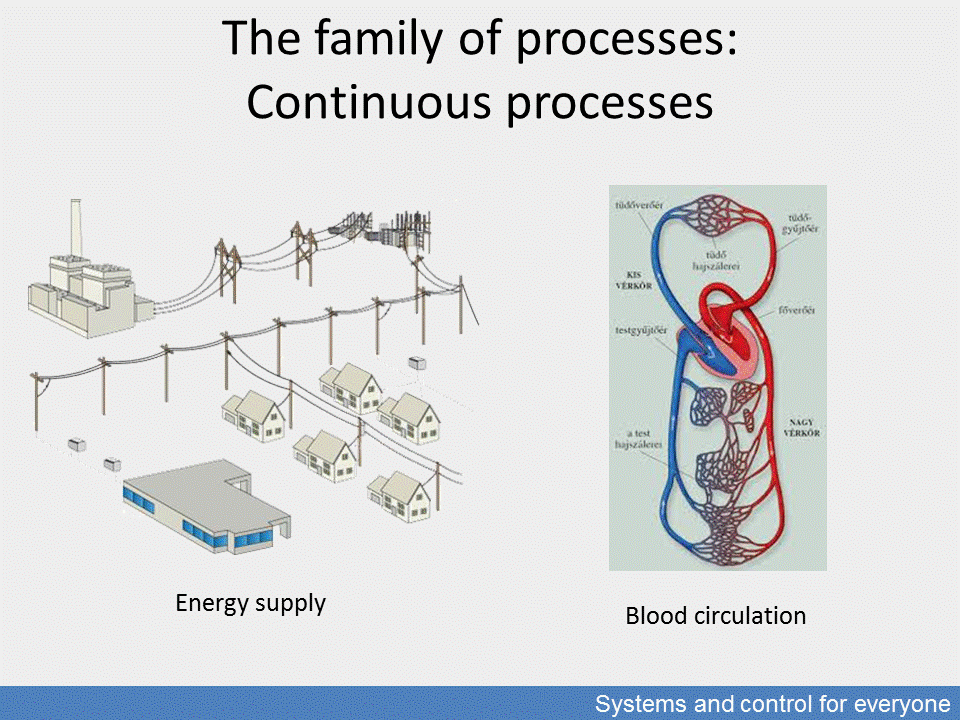

The family of processes: continuous processes
All processes have longer or shorter operating phases in which states change without interruptions, i. e. through a series of smooth transitions. Such processes are, for example, heating a fluid to the point of boiling, the digestion of food, the operation of water and energy supply services under normal circumstances, or engine processes during periods of smooth driving. One could argue that even these processes are always subject to interruptions. The argument would be right, but those operations are calculated differently, i. e. the technical conditions of the operator is treated differently. Continuous operation phases that we observe and control can be modelled with differential equations, more specifically by functions that describe continuity according to the conditions of differentiability. These are the implications of the mathematical representations of the basic models of motion.